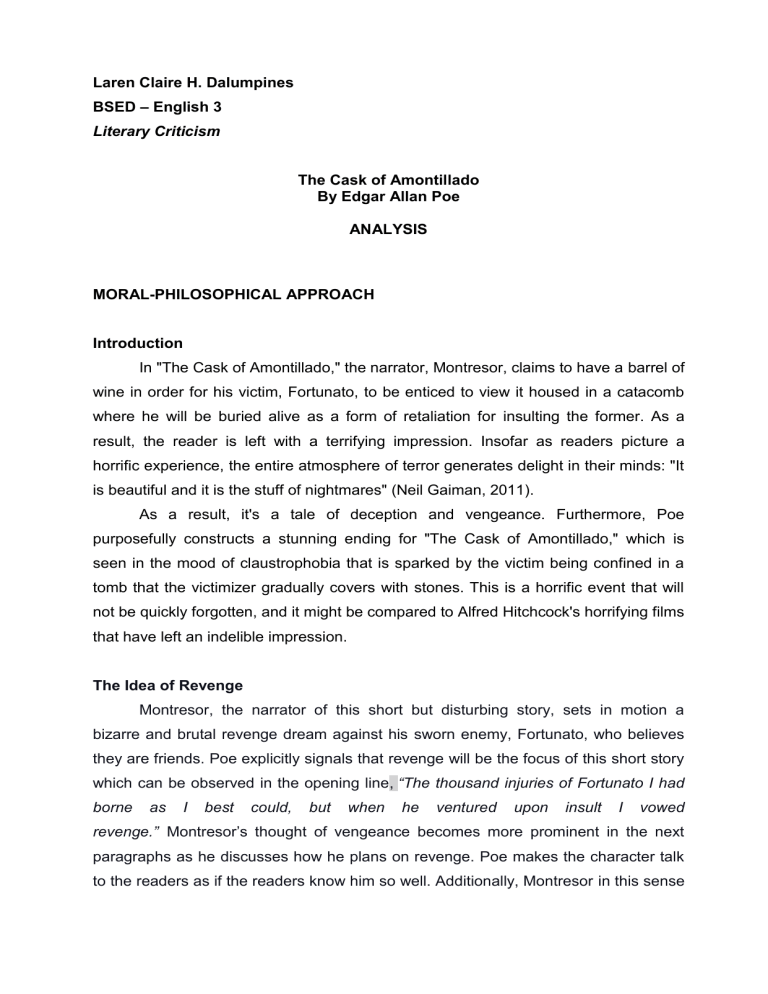Exploring The Literary Style And Themes Of Alan Roden, Spectator Author

Table of Contents
Alan Roden's Distinctive Literary Style
Alan Roden's writing is characterized by a distinct style that seamlessly blends precision with evocative imagery. His mastery of language allows him to convey complex ideas with clarity and grace, making his essays accessible to a wide audience while maintaining intellectual depth.
Precise and Evocative Prose
Roden’s prose is renowned for its concision and impact. He avoids unnecessary embellishment, favoring precise phrasing that leaves a lasting impression. This stylistic choice is exemplified in his skillful use of figurative language, including metaphors and similes, which enrich his writing and make abstract concepts more tangible. His tone often shifts between witty and ironic observations and moments of serious reflection, adding layers of complexity to his arguments.
- Example: (Insert a specific example of precise phrasing from one of Roden's essays, noting the essay title). The sentence structure and word choices demonstrate his ability to convey meaning with economy and impact.
- Example: (Insert a second example, perhaps showcasing a metaphor or simile). This effectively illustrates how Roden uses figurative language to illuminate his arguments.
- Example: (Include an example of his use of irony or wit). This demonstrates his ability to engage the reader while making a poignant point.
Structure and Argumentation
Roden’s essays are typically well-structured, employing a variety of approaches to build his arguments. While some follow a chronological structure, tracing the development of an idea or event, others adopt a thematic approach, exploring various facets of a central issue. He expertly weaves together evidence and supporting details to construct persuasive and logically sound arguments. He often uses a comparative approach, juxtaposing different perspectives or historical periods to enhance understanding.
- Example: (Provide an example of a chronological essay structure from his work, naming the essay). This demonstrates his ability to guide the reader through a narrative arc.
- Example: (Provide an example of a thematic structure). This highlights his skill in exploring multiple dimensions of a single topic.
- Example: (Provide an example of comparative argumentation). This shows his capacity to analyze contrasting perspectives to reach his conclusions.
The Influence of The Spectator
Alan Roden's writing is undeniably shaped by his association with The Spectator. The publication’s style guide and editorial direction likely influence his concise prose and focus on clear argumentation. While maintaining his unique voice, his work aligns with the overall tone and intellectual rigor expected from The Spectator contributors.
- Comparison: A comparison with other Spectator authors reveals both stylistic similarities and distinct individual characteristics, showcasing how Roden occupies a unique niche within the publication's larger literary community. (Mention specific authors for comparison).
Recurring Themes in Alan Roden's Writings
Beyond his distinctive style, Alan Roden's work is marked by several recurring themes that reflect his intellectual preoccupations and his perspective on the world. These themes consistently reappear throughout his essays, revealing a coherent and evolving body of thought.
Politics and Society
Roden frequently engages with significant political and social issues, often approaching these topics from a thoughtful and nuanced perspective. His essays reveal his keen observations on contemporary affairs, including debates on conservatism, liberalism, and the impact of social change. He deftly analyzes specific policies and their consequences, offering insightful commentary and challenging conventional wisdom.
- Example: (Cite an essay exploring a specific political issue and summarize Roden’s perspective). This demonstrates his analytical skills and ability to engage with complex political debates.
- Example: (Cite another essay dealing with a social issue, highlighting his stance). This illustrates his concern for social justice and his ability to articulate his views persuasively.
Culture and the Arts
Roden demonstrates a deep appreciation for the arts and culture, frequently discussing literature, art, music, and other creative expressions. His essays reveal a critical engagement with cultural phenomena, highlighting his discernment and ability to pinpoint both strengths and weaknesses in various artistic expressions. He offers insightful commentary, often praising innovation while also raising pertinent critiques.
- Example: (Mention an essay where he discusses a specific book or author and outline his analysis). This exemplifies his engagement with literary criticism.
- Example: (Mention an essay where he reviews an artistic movement or a particular artist). This demonstrates his interest in visual arts and his ability to critically assess artistic merit.
Personal Reflections and Anecdotes
While maintaining a primarily intellectual focus, Roden often incorporates personal experiences and observations into his essays. He effectively uses anecdotes to illustrate his points, making his arguments more relatable and engaging. These personal touches add depth and dimension to his work, revealing the human side of his intellectual pursuits.
- Example: (Provide an example of an essay where he uses a personal anecdote to illustrate a point). This showcases the effectiveness of his personal reflections in enhancing his arguments.
- Example: (Provide another example highlighting the role of personal experiences in shaping his perspectives).
Conclusion: Understanding the Enduring Legacy of Alan Roden, Spectator Author
Alan Roden's enduring legacy rests on his distinctive literary style, marked by precise and evocative prose, skillful argumentation, and a keen awareness of the influence of The Spectator's editorial context. His recurring themes—politics and society, culture and the arts, and insightful personal reflections—reveal a coherent and engaging body of thought. His contributions to The Spectator have not only enriched the publication but also offer valuable insights into contemporary issues and cultural trends.
Dive deeper into the world of Alan Roden, Spectator author, by exploring his essays collected in [mention any collections if applicable]. Further research into similar authors who engage with similar themes will enrich your understanding of this insightful writer's contributions to the literary landscape. Explore the insightful essays of Alan Roden today!

Featured Posts
-
 New Lawsuit Targets Epic Games Fortnite In Game Store Operations
May 03, 2025
New Lawsuit Targets Epic Games Fortnite In Game Store Operations
May 03, 2025 -
 Poppys Family Issues Emotional Tribute Following Death Of Young Manchester United Supporter
May 03, 2025
Poppys Family Issues Emotional Tribute Following Death Of Young Manchester United Supporter
May 03, 2025 -
 Significant Increase Poppy Atkinson Memorial Fundraiser In Kendal
May 03, 2025
Significant Increase Poppy Atkinson Memorial Fundraiser In Kendal
May 03, 2025 -
 Aleksandr Lakazet 157 Gola Vv Frenskoto Prvenstvo Nov Rekord
May 03, 2025
Aleksandr Lakazet 157 Gola Vv Frenskoto Prvenstvo Nov Rekord
May 03, 2025 -
 Fortnites Captain America Freebie Event Time Is Running Out
May 03, 2025
Fortnites Captain America Freebie Event Time Is Running Out
May 03, 2025
